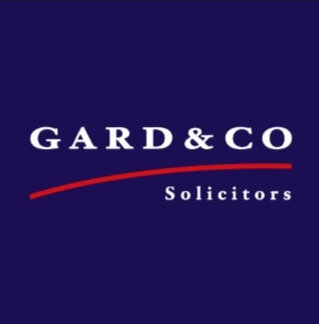Best Toxic Mold Lawyers in Plymouth
Share your needs with us, get contacted by law firms.
Free. Takes 2 min.
List of the best lawyers in Plymouth, United Kingdom
About Toxic Mold Law in Plymouth, United Kingdom
Toxic mold refers to certain types of harmful fungi that can grow indoors and negatively impact health and property. In Plymouth, United Kingdom, toxic mold is an increasing concern due to the region’s damp climate and prevalence of older housing stock. Exposure to toxic mold can cause severe respiratory issues, allergic reactions, and property damage. Laws governing toxic mold focus on the responsibilities of property owners and landlords to maintain safe, habitable environments, as well as the rights of tenants and homeowners to take action if mold is present.
Why You May Need a Lawyer
Legal challenges related to toxic mold often arise between property owners, landlords, tenants, homeowners, and even builders or insurers. You may need a lawyer if you are experiencing any of the following situations:
- You are a tenant suffering from health problems or property loss due to mold in your rented property, and your landlord has not taken appropriate action
- You are a landlord facing claims or disputes over mold issues in your rental property
- You have purchased a home that was not accurately disclosed to have a history of mold
- Your insurance company has refused to pay for mold remediation or damages
- You are involved in construction or renovation issues where inadequate materials or methods resulted in mold growth
- You wish to understand your rights and responsibilities related to mold in a property you own, manage, or rent
A lawyer familiar with local mold laws can help assess your case, negotiate with landlords or insurers, advise on evidence gathering, and represent you in any potential legal proceedings.
Local Laws Overview
Several national and local legal frameworks are relevant to toxic mold cases in Plymouth:
- The Housing Act 2004 outlines landlords’ obligations to provide safe and healthy housing. Mold that negatively impacts health may be classed a hazard under the Housing Health and Safety Rating System (HHSRS). Local authorities, such as Plymouth City Council, can require landlords to remedy mold issues that pose health risks.
- The Landlord and Tenant Act 1985 requires rented homes to be “fit for human habitation.” Persistent mold may render a property uninhabitable, prompting potential claims by tenants.
- The Defective Premises Act 1972 requires landlords and builders to ensure that dwellings are free from defects, including mold, that may cause injury or damage.
- Environmental Health departments have powers to inspect, enforce improvements, or-in extreme cases-prohibit occupancy of mold-affected dwellings.
- Insurance contracts and the Consumer Rights Act 2015 may also play a role if disputes arise with service providers or sellers regarding unnoticed or undisclosed mold problems.
Remediation, liability, compensation, and rights to alternative accommodation are all governed by these interrelated laws.
Frequently Asked Questions
What constitutes toxic mold in a legal sense?
Toxic mold generally refers to types of mold that can cause harm to health or property. Legally, it is considered a hazard if it negatively impacts occupants, triggering action by landlords or local authorities.
Are landlords required to fix toxic mold in Plymouth?
Yes, under the Housing Act 2004 and Landlord and Tenant Act 1985, landlords must keep rental properties free from hazards, including mold, and ensure homes are fit for human habitation.
What rights do tenants have if they discover mold?
Tenants have the right to request repairs and expect timely action. If landlords fail to act, tenants can report the matter to the local Environmental Health department, which may issue improvement notices or enforce repairs.
Can I withhold rent if my property has mold?
Withholding rent is not recommended without legal advice, as it may lead to eviction proceedings. Instead, document the problem and follow up with formal written complaints to your landlord and local authorities.
How do I prove my health problems are caused by toxic mold?
Gather medical evidence, such as doctor reports linking your symptoms to mold exposure, as well as photographs, repair records, and inspection reports showing the extent and location of mold in your home.
What can I do if my landlord refuses to address mold issues?
You can contact the Environmental Health department at Plymouth City Council, which can inspect your home and require your landlord to remedy the hazard. You may also pursue legal claims for damages or rent reduction.
Is my landlord responsible for all mold found in my home?
Landlords are typically responsible for mold caused by structural problems or failure to address leaks or damp. Tenants may be responsible for mold resulting from poor ventilation or not following proper living practices, such as drying clothes indoors without ventilation.
Are property buyers protected if mold is found after purchase?
If sellers or agents fail to disclose known mold issues, buyers may have claims under misrepresentation laws or the Consumer Rights Act. Legal advice should be sought to address possible remedies.
Will my home insurance cover mold damage?
It depends on your policy. Some insurers cover mold resulting from sudden and accidental incidents, such as a burst pipe, but may exclude claims for longstanding damp or neglect. Check your policy or seek legal assistance if your claim is denied.
How can a solicitor help with a toxic mold problem?
A solicitor can assess your case, guide you on evidence gathering, negotiate with landlords or insurers, draft formal communications, represent you in court, and maximise your chances of achieving a satisfactory outcome.
Additional Resources
If you are dealing with toxic mold in Plymouth, the following resources may be valuable:
- Plymouth City Council Environmental Health department - for inspections and enforcement of repairs
- Citizens Advice - for guidance on tenant and landlord rights and how to escalate complaints
- Solicitors Regulation Authority (SRA) - to find a qualified legal representative
- Health and Safety Executive (HSE) - for workplace mold concerns
- Environmental Protection UK - for information on mold, damp, and living standards
- The UK Association of Residential Letting Agents (ARLA) - for issues relating to renting
Next Steps
If you believe you have a toxic mold problem in Plymouth, United Kingdom, start by documenting the presence and effects of mold in detail, including photographs, medical records, and any correspondence with your landlord or property manager. Make all complaints or requests in writing and keep copies.
Report unresolved issues to the Environmental Health department at Plymouth City Council. If you still do not gain a satisfactory response or believe your rights have been breached, seek advice from a solicitor with experience in landlord and tenant law, property disputes, or personal injury. Many firms offer initial consultations to discuss the merits of your case.
Taking prompt, informed legal action can protect your health, your home, and your financial wellbeing. Gather all relevant evidence, reach out to professional resources, and consult a legal expert to explore your options and ensure your rights are upheld in toxic mold situations.
Lawzana helps you find the best lawyers and law firms in Plymouth through a curated and pre-screened list of qualified legal professionals. Our platform offers rankings and detailed profiles of attorneys and law firms, allowing you to compare based on practice areas, including Toxic Mold, experience, and client feedback.
Each profile includes a description of the firm's areas of practice, client reviews, team members and partners, year of establishment, spoken languages, office locations, contact information, social media presence, and any published articles or resources. Most firms on our platform speak English and are experienced in both local and international legal matters.
Get a quote from top-rated law firms in Plymouth, United Kingdom — quickly, securely, and without unnecessary hassle.
Disclaimer:
The information provided on this page is for general informational purposes only and does not constitute legal advice. While we strive to ensure the accuracy and relevance of the content, legal information may change over time, and interpretations of the law can vary. You should always consult with a qualified legal professional for advice specific to your situation.
We disclaim all liability for actions taken or not taken based on the content of this page. If you believe any information is incorrect or outdated, please contact us, and we will review and update it where appropriate.











